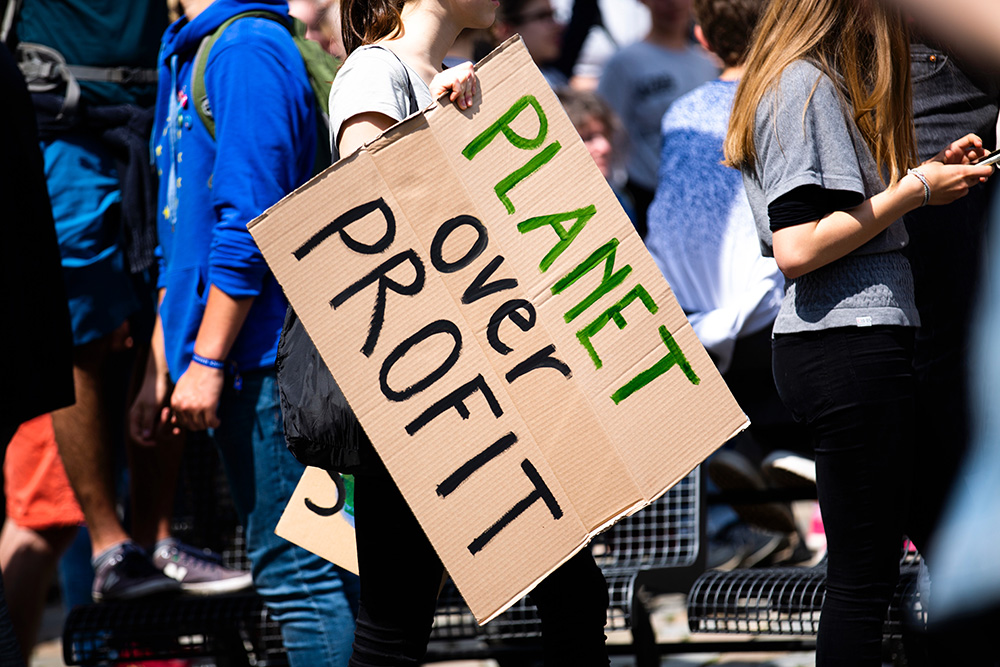Setting the tone for the World Economic Forum next week in Davos, world leaders are citing failure to act on climate change as the No. 1 danger facing the world, replacing weapons of mass destruction.
Natural disasters, biodiversity loss, and water crises are likely to increase, according to a survey of more than 1,000 business, government, civil society and thought leaders. Climate-related risks took nine of the top 10 spots ahead in the survey — only the danger of weapons of mass destruction wasn’t directly related to the environmental crisis.
“Climate change is striking harder and more rapidly than many expected,” said the forum’s Global Risks Report 2020. “The near-term impacts of climate change add up to a planetary emergency that will include loss of life, social and geopolitical tensions and negative economic impacts.”
The report is the latest evidence that a wide range of top leaders — from political to business to financial — have come to grips with the fact that they can no longer concentrate solely on economic growth while ignoring its impact on society and the environment. Investment firms such as BlackRock, the world’s largest asset manager, and banks including BNP Paribas have signaled in recent months that they also are putting higher priority on sustainability.
The Davos gathering’s focus on climate was hinted at by founder Klaus Schwab, who last month released an updated forum manifesto that called for companies to consider the needs of employees, environment and suppliers rather than simply focus on maximizing shareholder profits.
The forum’s president, Borge Brende, said he expects U.S. President Trump to be questioned about climate change next week. Trump, scheduled to attend the forum on Tuesday, has eliminated a number of environmental regulations since taking office and has withdrawn the U.S. from the Paris Climate Accord.
The survey listed the top 10 risks in terms of likelihood, led by extreme weather, and the top 10 risks in terms of impact, topped by climate action failure. While climate change dominated the survey answers, respondents also identified an economic downturn as the biggest short-term risk. Domestic political polarization and cyberattacks, especially on infrastructure, were also flagged as threats.
Even so, “climate-related risks overshadow all other risks – in particular economic risks – undermining cohesive action and creating blind spots,” Gayle Markovitz, a forum editor, wrote on the group’s website. “Climate-related issues have been simmering for at least a decade and now the world is at a tipping point.”
- Addressing climate change would bring economic hardships to individuals, according to a Deutsche Bank research report prepared for the meeting. The heightened efficiency of combustion engines needed to cut emissions, for instance, would cause the price of an average gas-powered car to increase about $4,455 on the low end to $7,800 on the high end, the report estimated.
- The forum in recent years has had to cope with criticism over the environmental footprint of gathering thousands of people from all over the world to a summit in Switzerland. This year the forum is promising to buy carbon credits to offset the flights of attendees and is highlighting a menu packed with locally-sourced food. The fleet of vehicles that will shuttle many dignitaries around is now 88% electric or hybrid, the group said.

























